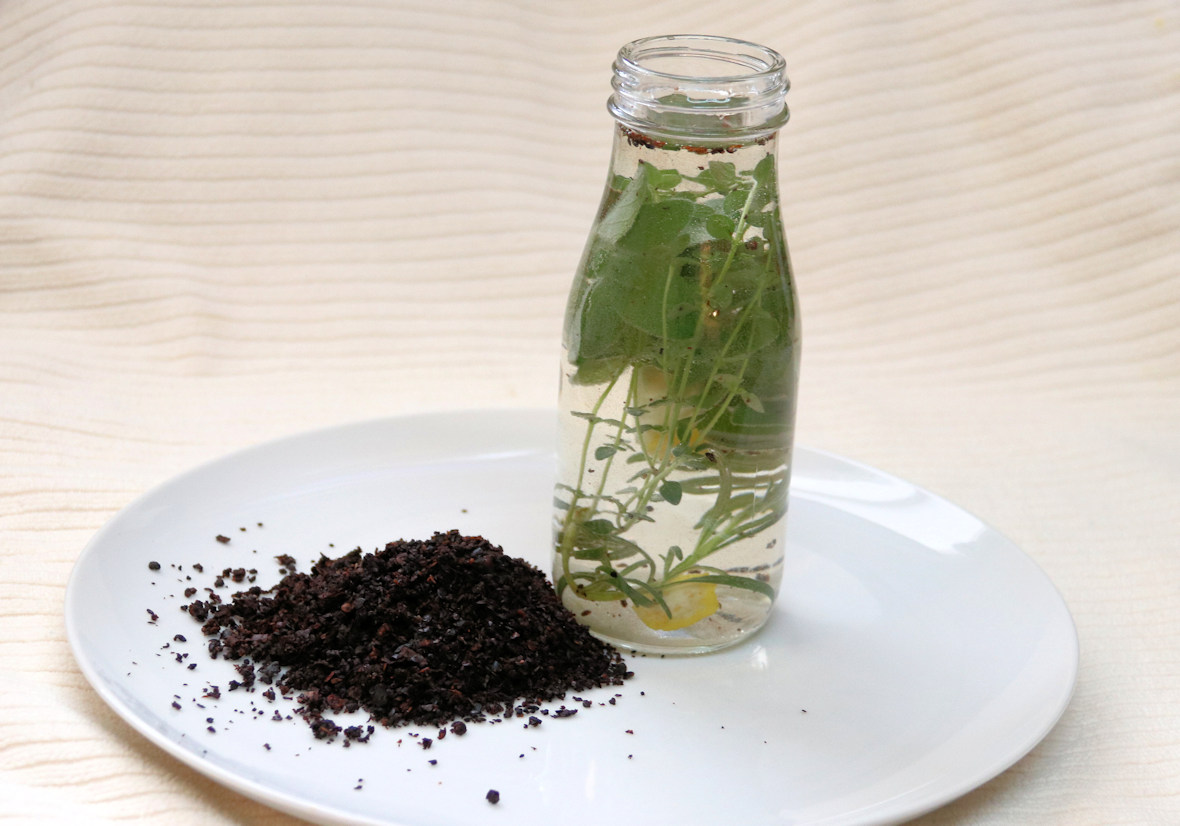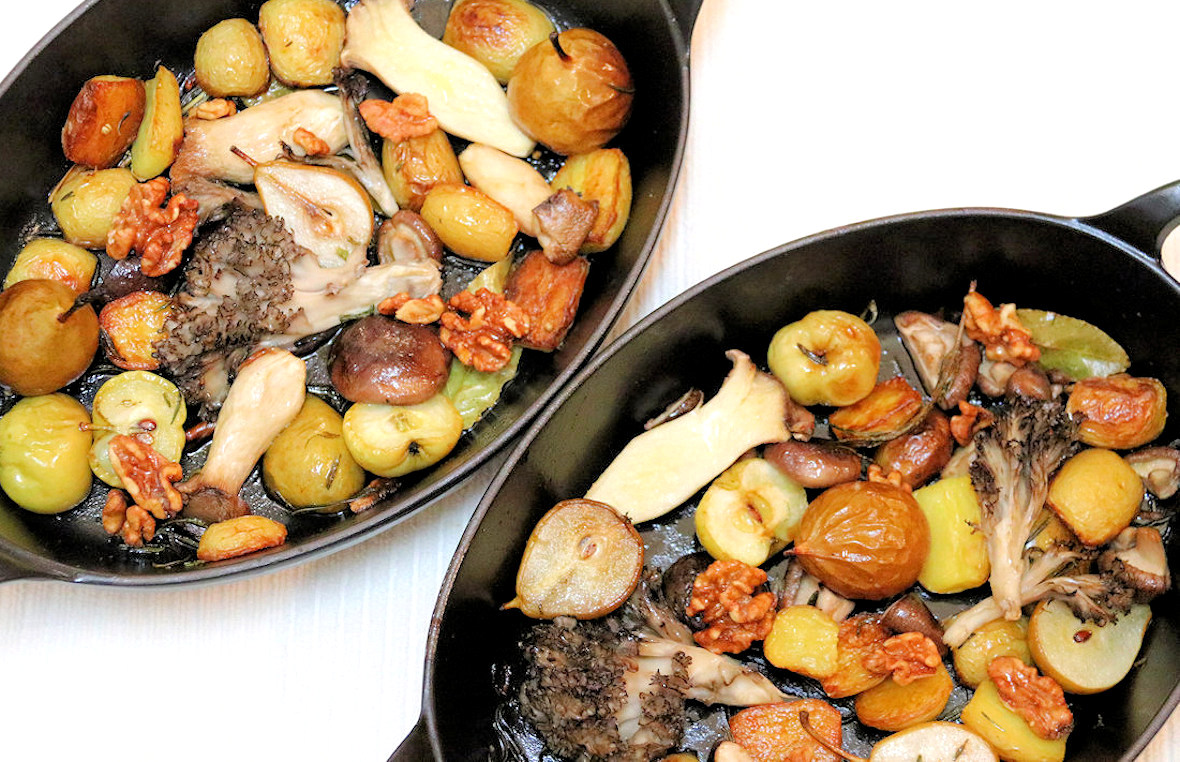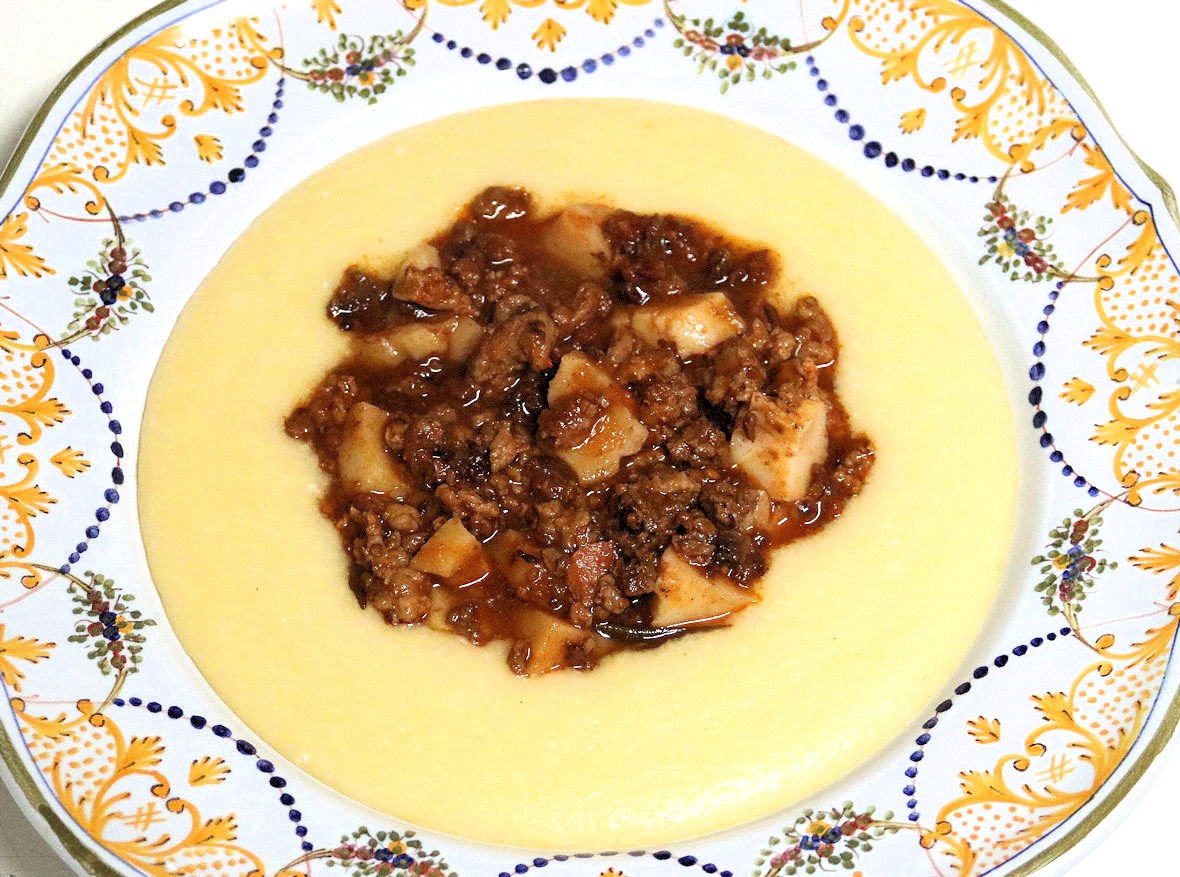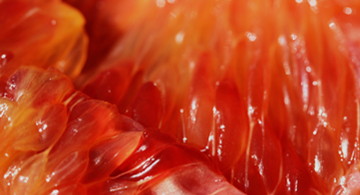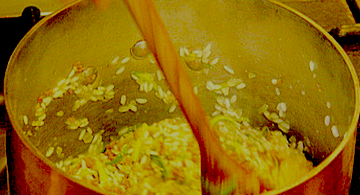
Rosemary, or Rosmarinus officinalis, is an evergreen perennial shrub with several cultivars, ranging in habit from creeping to mounding to upright. Loving heat and not requiring moist fertile soil, it is prolific in Italy growing wild, climbing walls, flourishing in the rocky countryside. A small plant in an 8-inch (20-cm) diameter pot can grow to be 3 to 6.5-feet (1 to 2 meters) in diameter and height within a few years, and blooms frequently. So ideal is the growing climate that rosemary often grows into high dense hedges delineating land boundaries. In times past, these hedges became a type of protection against intruders. As a person or animal passed through the hedges, the strong scent of rosemary wafted in the air, a sensory alert.
Traditions: Rosemary is one of the best-known herbs throughout millennia. It was found in Egyptian First Dynasty tombs. Known as the herb of remembrance, it symbolizes loyalty and friendship, and is traditionally associated with weddings and funerals today as it was in ancient Greek and Roman cultures. Physicians and pharmacologists recommended using rosemary as a medicinal herb: Dioscorides recommended it for relieving stomach and liver problems, Galen for jaundice and liver infections, Hippocrates said to cook rosemary with vegetables then consume to help with liver and spleen disorders.
Applications: Rosemary is an important medicinal herb. It helps protects our brains against neurodegeneration from free radicals, and helps counter mental and physical exhaustion bringing back clarity and energy. Oil is massaged into the muscles relieving discomfort from rheumatism. As an aid for digestive disturbances, it stimulates the appetite in aroma and taste. Make rosemary tea then drink for liver problems. Warm white wine with it then drink for alleving headaches, tiredness, and weakness.
Chinese Medicine: The rosemary plant is considered warm and pungent. It induces perspiration and is a tonic for stomach ailments. It is recommended for relieving headaches.
Rosemary Essential Oil: This oil is strongly antiseptic. It is considered a stimulant, improves alertness and memory. It corrects hormonal imbalances and is a diuretic. It promotes liver detoxification, improves gallbladder function, and over time helps regulate hormonal and blood sugar levels. When suffering from colds and respiratory congestion, mix a few drops with a carrier oil and rub it onto the chest, it is an effective expectorant. With anti-inflammatory properties, it relieves muscle aches.
Rosemary essential oil is excellent for hair and scalp problems including itchy or oily scalp and alopecia; mix the oil with a carrier oil, massage gently, then shampoo. It thickens hair. Often rosemary oil is combined with sage, mint, or lavender oil to infuse bath gels and soaps for its soothing qualities calms nerves. Do not use this oil if you have high blood pressure, are pregnant, or are epileptic.
Culinary Uses: The entire shrub is used. Older bushes are used as fuel for outdoor grilling – the aroma is fantastic! Strong brittle branches become skewers – simply thread mushrooms, meat, poultry, and firm fish onto the branches and during cooking rosemary flavors them, delicious. Rosemary is consistently used as the main herbal flavoring for meats, poultry, game, seafood, and vegetables. Nothing else is needed other than garlic, salt, pepper, and extra-virgin olive oil. Including a small sprig when braising protein, roasting vegetables and fruit, making wine sauces, making tomato sauces, and mixing cocktails and other beverages, adds depth of flavor. Rosemary needles are left whole or chopped. When needles are minced, it is mixed into breads, cakes, and desserts – fantastic!
* This synopsis imparts valuable information that could be beneficial as part of a wellness program. Its purpose is to open the thought process to consider including herbs and spices as natural supplements in personal regimens. Briefly stating how the plant was valued and used historically in different ages and cultures, it lists some current uses. If interested in this particular plant, please extend your research via books and articles for more details and uses.
With increasing interest for including alternative therapies with standard drug therapy, research continues, so this topic evolves continuously. Please consult your wholistic and holistic practitioners, homeopaths, nutritionists, dentists, and physicians to keep yourself updated if you choose to incorporate or ingest the plant in any form for medical purposes.

